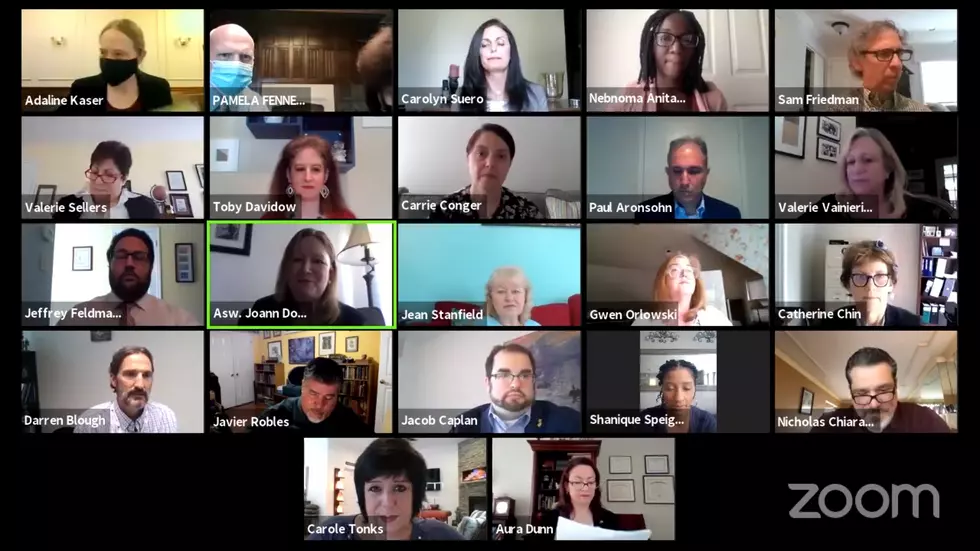
Assembly panel focuses on COVID’s toll on oft-overlooked disabled
TRENTON — One-third of residents in New Jersey’s five developmental centers have contracted the novel coronavirus, and 173 people in those centers or group homes have died from COVID-19, state lawmakers were told Thursday at a virtual committee hearing.
“While nursing homes have come under the spotlight, little attention has gone toward congregate living facilities that house residents with intellectual, developmental, cognitive and other disabilities,” said Assemblywoman Joann Downey, D-Monmouth, who chairs the Assembly Human Services Committee.
Department of Human Services data shows that as of Sunday, 450 of the 1,238 residents of the developmental centers tested positive for COVID-19, including 32 who have died and 406 who have recovered. Of the 463 staff who have been infected, one has died and 392 have recovered.
Of the roughly 24,000 people with developmental disabilities who live in community settings, which includes but isn’t limited to group homes, 887 have tested positive and 140 have died.
“We mourn for every precious life that has been lost, as well as for the pain and stress that these individuals and their families have endured,” Downey said. “Our state can and must do better by this vulnerable population.”
Valerie Sellers, chief executive officer of the New Jersey Association of Community Providers, said challenges began immediately when the pandemic struck, as centers were short of personal protective equipment but were not immediately prioritized to receive it from the state.
“We were on our own,” Sellers said. “We were literally left on our own to acquire PPE. And we were deemed essential employees, so that was even more shocking. We’re essential employees. You expect them to go to work, and we’re not going to afford them any protections.”
Carole Tonks, executive director of the Alliance Center for Independence in Edison, said that while residents and staffers in developmental centers all have been tested for coronavirus, group homes still have not been tested.
“We have been unable to receive an answer as to when this will happen,” Tonks said. “And we do not want to see group homes turn into the next nursing homes. So we feel it’s imperative that the testing begin.”
During the pandemic, DHS has been making 75% retainer payments for day services temporary suspended because facilities are closed and is paying a $3 per hour increase for direct support professionals. But those will likely end when the health emergency declaration is lifted, which worries Sellers.
“The reality is the families are not going to come back wholesale. They’re not,” Sellers said. “It’s going to be a slow return to day programs and potentially people coming back to the group homes. And that’s understandable, with the fear factor and people wanting to keep their loved one close to home. Which places those providers in even a more precarious position in their ability to sustain the programs.”
Gov. Phil Murphy has said a full assessment of the state’s response to the pandemic will be done, and Paul Aronsohn, the state’s ombudsman for individuals with intellectual or developmental disabilities and their families, said the impact on special-needs populations needs to be reviewed.
“Going forward, I hope and expect that we will all benefit from lessons learned over the past few months – good, bad and otherwise,” Aronsohn said. “I hope and expect that we will engage in honest, thoughtful and open conversations about what worked and what didn’t, acknowledging the unprecedented nature of this experience while fully recognizing and fully owning our responsibility to get it right.”
More From WOBM News:

Take A Virtual Trip To The Beach
More From Beach Radio










